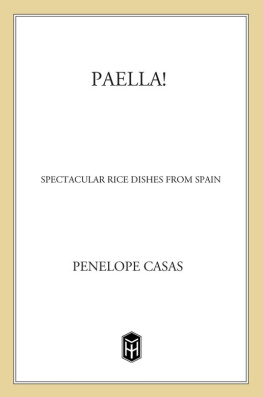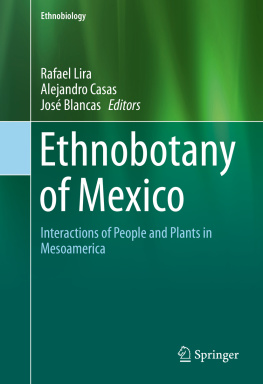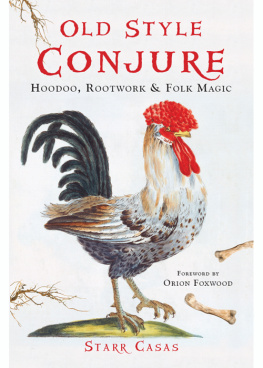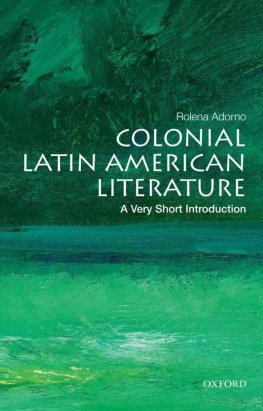
A SHORT ACCOUNT OF THE DESTRUCTION OF THE INDIES
BARTOLOM DE LAS CASAS was born in Seville in 1484. At the age of eighteen he left Spain for the New World, where he participated in the conquest of Cuba and witnessed the first full-scale massacre of an Indian community. He became a priest and, after a conversion, entered the Dominican order. Thereafter he dedicated himself to the protection and defence of the Indians. After witnessing the ravages and atrocities of the Spanish colonists and the tragic failure of his own project for a peaceful colony in Cuman, he wrote the Short Account of the Destruction of the Indies in 1542. The book was dedicated to Philip II and was, Las Casas claimed, intended to inform the Spanish crown of what was happening in America, as a warning that if the actrocities continued God would destroy Spain as a punishment This astonishing work a fierce, informed, deeply atmospheric anatomy of genocide was immediately translated into every major European language and for three hundred years established the image of the Spanish conquest of America in the eyes of Europe. Las Casas wrote innumerable other works in defence of the Indies, including one of the earliest studies in comparative anthropology (The Apologetic History of the Indies) and a general History of the Indies. He died in 1576.
ANTHONY PAGDEN is Professor of History and Political Science at the University of California, Los Angeles. He has written widely on the history of Europe's relationship with the non-European world, and on the history of imperialism, ancient and modern. His books include European Encounters with the New World, Lords of all the World, Ideologies of Empire in Spam, Britain and France and, most recently, Peoples and Empires.
NIGEL GRIFFIN read Modern Languages at Oxford, taught there and at the University of Manchester, and has held visiting professorships in Italy and Hungary. He is the author and editor of several books and monographs on early modern Spanish and Portuguese literature and history and now works as a freelance translator and editor. His publications include Las Casas on Columbus.
BARTOLOM DE LAS CASAS
A Short Account of the Destruction of the Indies
Edited and Translated by NIGEL GRIFFIN
With an Introduction by ANTHONY PAGDEN
PENGUIN BOOKS
PENGUIN BOOKS
Published by the Penguin Group
Penguin Books Ltd, 80 Strand, London WC2RORL, England
Penguin Group (USA), Inc., 375 Hudson Street, New York, New York 10014, USA
Penguin Books Australia Ltd, 250 Camberwell Road, Camberwell, Victoria 3124, Australia
Penguin Books Canada Ltd, 10 Alcorn Avenue, Toronto, Ontario, Canada M4V 3B2
Penguin Books India (P) Ltd, 11 Community Centre, Panchsheel Park, New Delhi 110 017, India
Penguin Books (NZ) Ltd, Cnr Rosedale and Airborne Roads, Albany, Auckland, New Zealand
Penguin Books (South Africa) (Pty) Ltd, 24 Sturdee Avenue, Rosebank 2196, South Africa
Penguin Books Ltd, Registered Offices: 80 Strand, London WC2R ORL, England
www.penguin.com
First published 1992
Reprinted with a Chronology and Further Reading 2004
This translation and notes copyright Nigel Griffin, 1992
Introduction, Chronology and Further Reading copyright Anthony Pagden, 1992, 2004
All rights reserved
The moral rights of the translator and of the Introduction author have been asserted
Except in the United States of America, this book is sold subject to the condition that it shall not, by way of trade or otherwise, be lent, re-sold, hired out, or otherwise circulated without the publisher's prior consent in any form of binding or cover other than that in which it is published and without a similar condition including this condition being imposed on the subsequent purchaser
9780141912691
CONTENTS
A SHORT ACCOUNT OF THE DESTRUCTION OF THE INDIES
Illustrations appearing on pages 16, 47, 49, 59, 62, 73, 112 and 118 are by the Flemish engraver Theodor de Bry and are taken from a sixteenth-century Dutch edition of the Short Account of the Destruction of the Indies. They are reproduced by kind permission of the British Library.
For Harriet and Felix
ACKNOWLEDGEMENTS
The editor would like to thank Dr A. Gordon Kinder of the University of Manchester and Dr Clive Griffin of Trinity College, Oxford, both of whom read the text of the translation and made helpful suggestions.
Previous page: Map of America (Basle, 1540) showing the standards of Spain and Portugal.
INTRODUCTION
I
The Short Account of the Destruction of the Indies was the first and the most bitter protest against the excesses of European colonization in the Americas, and its author, Bartolom de Las Casas, Defender and Apostle to the Indians, the most controversial figure in the long and troubled history of Spain's American empire. In the four hundred years since his death he has been given many roles to play: the voice of a European Christian conscience raised against the casual slaughter of thousands of barbarians in a remote, barely imaginable quarter of the globe; the creator of the Black Legend, a distorted Protestant-inspired record of Spanish atrocities and cruelties which was to darken every attempt to exonerate Spanish imperial ventures from the sixteenth to the eighteenth centuries; the distant, unwitting father of Spanish-American independence, that friend of humanity, in the words of The Liberator Simn Bolvar, who with such fervour and determination denounced to his government and his contemporaries the most horrific acts of that sanguineous frenzy; and the equally unwitting progenitor of today's Liberation Theology. In Latin America he is still ubiquitous. Even in Spain, despite murmurings of protest from the Catholic reactionaries of the late nineteenth century, he has been hailed as the authentic expression of the true Spanish conscience, in an attempt to explain away the destruction of the Indian peoples as a passing aberration in the nation's history. And for many, both in Spain and beyond, his presence seems, somehow, to redeem the inescapable complicity of all Europe in the Spanish conquests. The Abb Guillaume Raynal, author, together with Diderot, of the Philosophical and Political History of the Two Indies,the fiercest and the most widely read condemnation of European colonialism to be written during the Enlightenment, looked forward to a more generous age when these unfortunate lands which have been destroyed will be repopulated and acquire laws, customs, justice and liberty. And he imagined a statue of Las Casas, in which you will be shown standing between the American and the Spaniard, holding out your breast to the dagger of the latter to save the life of the former. And on the base such words as these should be inscribed: IN A CENTURY OF FEROCITY, LAS CASAS, WHOM YOU SEE BEFORE YOU, WAS A BENEVOLENT MAN. There are now, throughout the Americas, dozens of such statues.
Some of Las Casas's many identities have been devised to serve political and moral interests he would not have shared and may not even have understood. The Black Legend was largely an instrument of Anglo-Dutch propaganda, and he would have been horrified at the uses to which the despised Protestant heretics had put his work. Independence from Spain was something he never contemplated even for the Indians, let alone the descendants of the conquistadores themselves. Liberation Theology's implicit claim that the poor of Christ possess a privileged understanding of the human condition comes close to his self-consciously prophetic, apostolic vision of the new American Church. Nevertheless, he would never have accepted any kind of revolt against the power of either the Church or the State. His attacks on the behaviour of the conquistadores, on the agents of the Crown, even on members of the clergy were relentless and uncompromising. But he was never once during his lifetime formally accused of heterodoxy, nor ever suspected of treason. Only his fiercest enemy, Juan Gins de Seplveda (to whom I shall return) suggested that his writings were heretical and a threat to the interests of the Spanish monarchy. Las Casas, in fact, regarded all rebels as disrupters of the common reason of man. Like many radicals, he was, in all respects but one, the staunchest of conservatives. Self-educated, his massive if erraticlearning was directed only against those who argued that the conquest of America had conferred upon the Castilian Crown rights to the goods or the labour of the native inhabitants of the Americas.
Next page









